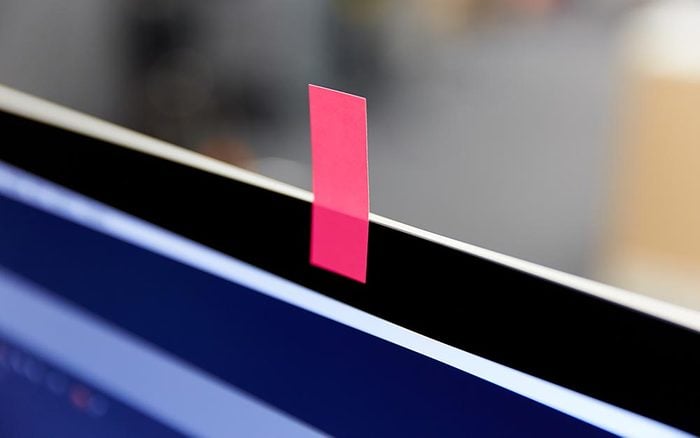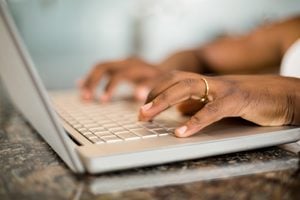The Real Likelihood You’re Being Watched Through Your Laptop Camera
Updated: Nov. 08, 2022

We've all heard that our computer camera can be used to spy on us. Is it true? Is it even possible? We got the tech experts to give us the download.
In our tech-driven world, it’s now obvious that our privacy can be easily compromised. If hackers can penetrate the White House, they can likely crack our personal devices. And yet we still use our phones, laptops, tablets, and more, as if that threat doesn’t exist. But can we really afford to ignore it?
If you have a modern device capable of getting online, chances are that it has a camera. And if so, there’s a probability that someone is looking for money or a glance at your intimate moments. Such driving factors have made way for a thriving black market for compromised webcams and the videos or photos they can produce. That’s why you may have heard the suggestion to protect yourself by taping over your computer camera and other devices with cameras.
The tip is not based simply on paranoia. In 2014, the FBI ran its largest cyber operation to date, in which scores of webcam hackers in more than 12 countries were arrested. The program, called Blackshades, gave users access to “photographs and other files on the victim’s computer and a record all of the keystrokes entered on the victim’s keyboard,” according to a report. It allowed them to steal passwords to the victims’ online accounts, and even activate the victim’s web camera to spy on them, all in secret. Here are 9 reasons your password is going to get you hacked.
And that’s just one vindictive tool that hackers have used on computers around the world. Apparently, there’s some evidence to suggest that the FBI has also hacked into people’s computers in order to access their webcams for surveillance.
Many Internet-connected webcams have their own IP address to permit remote access, which lets you connect directly to the webcam from anywhere in the world. However, if your camera is not protected by a strong password (which many of them aren’t), it makes it all that much easier for hackers to infiltrate. Make sure you don’t use these password recovery questions that are insanely easy to hack.
As for computer-connected webcams, hackers can use malware to access the cameras. This can happen when you accidentally click a bad link or download a sinister file.
“I’m quite confident that my own computer is not infected by malware—yet,” says Mikko Hermanni Hyppönen, a computer security expert and columnist who has assisted law enforcement in the United States, Europe, and Asia since the 1990s on cybercrime cases. “I cover my camera just in case, and to set an example. It’s not a bad idea.”
Chief Research Officer at F-Secure, a cybersecurity and privacy company based in Helsinki, Finland, Hyppönen is known for taking down the Sobig Worm in August of 2003, a computer worm that infected millions of Internet-connected, Microsoft Windows computers.
“There are plenty of trojans out there that can spy on you via your computer’s camera. We’ve even seen criminals ask money from people after they have collected embarrassing pictures of them via webcam,” he says.
It seems safe to say that, if you don’t want people watching your every move—especially without your permission and when you don’t know it—the only way to protect yourself in terms of your technology is to cover up the camera when not in use. And frankly, it really can’t hurt. It’s just a piece of tape.
